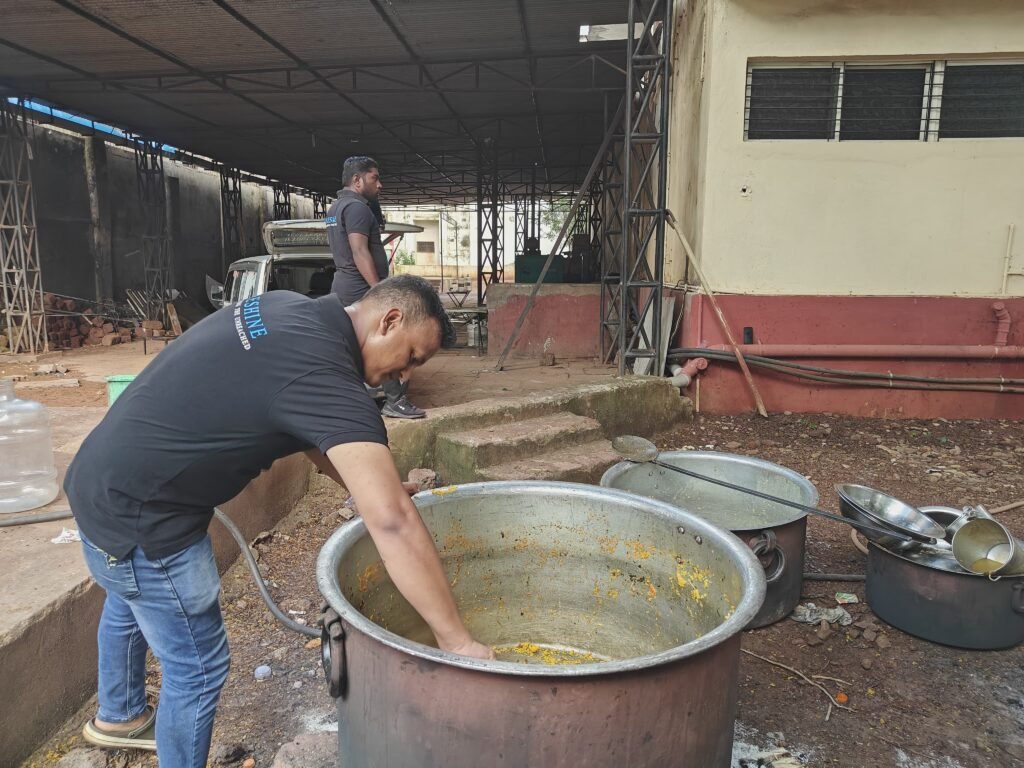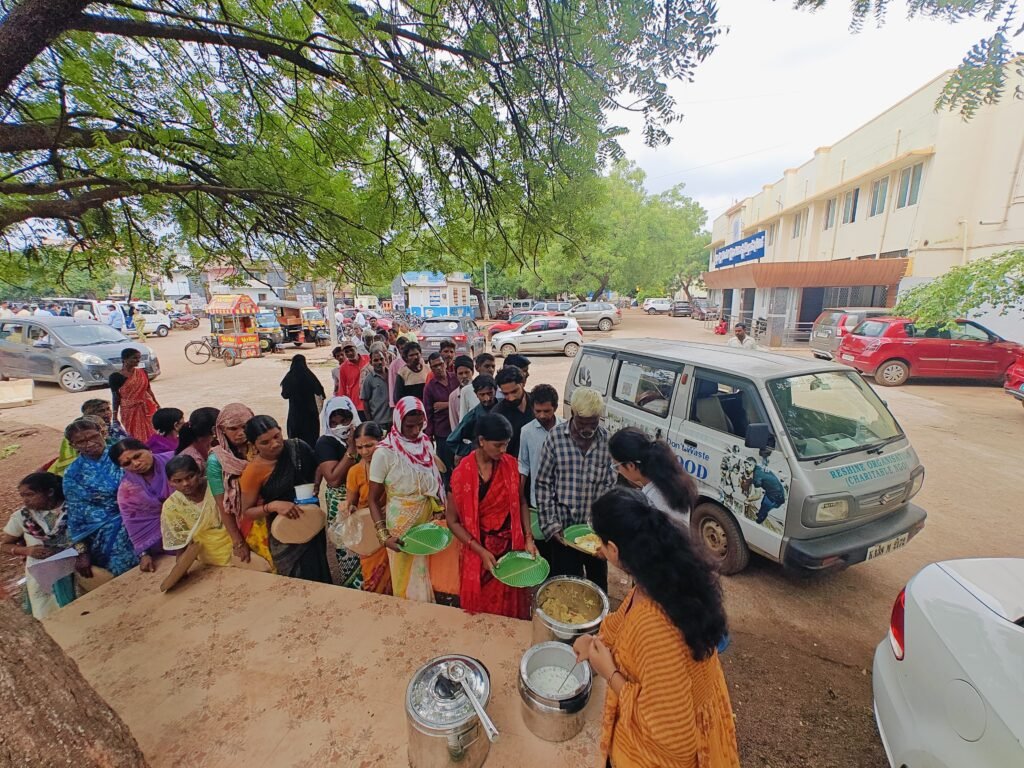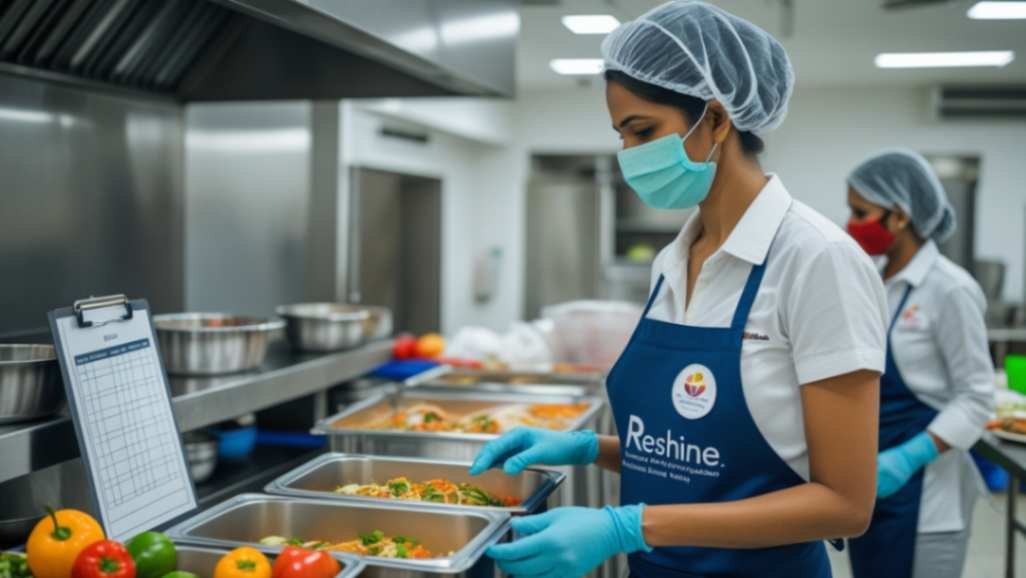Table of Content
- 1. On-Site Food Inspection for Food Safety and Hygiene
- 2. Unsafe Food to be Rejected for food safety and Hygiene
- 3. Clean Vessels for Food Collection and Hygiene Compliance
- 4. Timely Distribution for Maximum Food Safety
- 5. Hygienic and Dignified Food Distribution at Hunger Spots
- 6. Trained Teams Ensuring Food Safety and Hygiene
- 7. Transparent Processes Supporting Food Hygiene Standards
- Final Word: Safe Food, Served with Compassion
In a country where millions go hungry while food is wasted daily, Reshine Organisation works to bridge this painful gap. But our mission doesn’t stop at collecting surplus food—we go a step further to ensure every meal is handled with the utmost food safety and hygiene. From initial inspection to final delivery, we have strict practices in place to protect the health and dignity of those we serve.
Here’s how Reshine Organisation ensures the highest standards of food safety and hygiene at every stage of the redistribution process.
1. On-Site Food Inspection for Food Safety and Hygiene

Before any food is accepted, our team conducts a thorough inspection at the donor’s site—be it a hotel, function hall, or canteen. This includes:
- Checking the preparation time of the food
- Inspecting the visual and physical condition of the food
- Tasting the food to ensure it is fresh and fit for consumption
If the food fails to meet our quality standards—for example, if it smells bad or is visibly stale—it is respectfully declined. This pre-screening is our first step in upholding food safety.
2. Unsafe Food to be Rejected for food safety and Hygiene
There are instances where our team has rejected food donations due to poor handling, contamination, or odor. This step is critical, as we believe unsafe food is not charity—it’s a risk. By strictly enforcing this protocol, we maintain our credibility and protect the health of those we serve.
Our practices reflect not only national compliance but also global best practices for food hygiene as outlined by the WHO.
3. Clean Vessels for Food Collection and Hygiene Compliance
Once the food is approved, it is carefully transferred into clean, food-grade, stainless steel vessels that are regularly sanitised. These containers are dedicated only for food collection and never reused without cleaning, helping to prevent cross-contamination.
4. Timely Distribution for Maximum Food Safety
Time is a critical factor in food safety. That’s why we follow a strict “1-hour rule”: all collected food is distributed within one hour of pickup to ensure it remains fresh and safe for consumption.
This fast turnaround not only protects food quality but also reflects our efficient logistics system. Our entire process reflects our commitment to food safety and hygiene.
5. Hygienic and Dignified Food Distribution at Hunger Spots

We distribute food at predefined “Hunger Spots”—locations we’ve identified such as slum areas, hospitals, railway stations, and bus depots, where food insecurity is highest.
Here too, hygiene is maintained:
- Food is served in neat, clean plates
- For takeaways, we use sealed silver foils and hygienic covers
- Volunteers are trained to distribute with compassion and dignity
We don’t just hand out meals—we serve them with respect.
Internal Link Suggestion: Explore How Food Donation Helps Reduce Hunger in India
6. Trained Teams Ensuring Food Safety and Hygiene
Our team members are trained in FSSAI-recommended food safety standards, including:
- Handwashing during handling
- Clean uniforms and hairnets
- Proper disposal of any unusable food
We refresh these trainings regularly to ensure compliance and safety remain top priorities.
7. Transparent Processes Supporting Food Hygiene Standards
Reshine Organisation documents each stage of the food redistribution process. Our logs include:
- Donor details and food type
- Collection and distribution time
- Volunteer team involved
- Feedback from beneficiaries and partner NGOs
This level of documentation ensures accountability and allows us to continuously improve our processes.
Final Word: Safe Food, Served with Compassion
At Reshine Organisation, food safety and hygiene are non-negotiable. Whether we’re inspecting meals, sanitising vessels, or distributing food at a hunger spot, every step is carried out with care and responsibility.
Join our mission to fight hunger responsibly. Donate for food redistribution or support our operations —because every safe meal is a step toward a hunger-free tomorrow.




